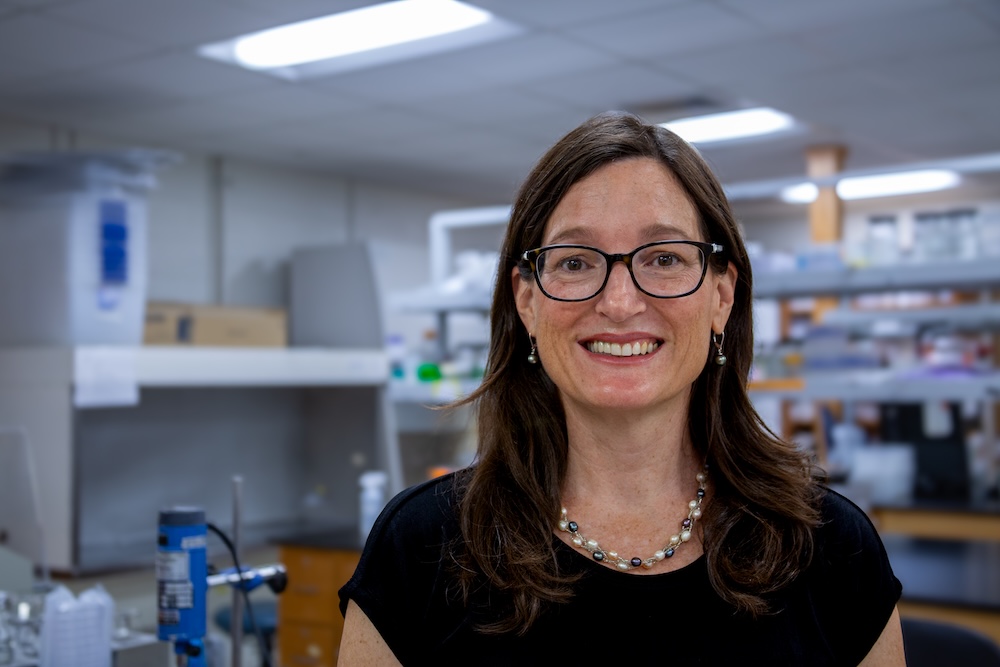Sharon Omahen
University of Georgia
University of Georgia researchers are working to raise farmers' profits by trimming the amount of fat in pigs.
"The idea is to produce a leaner pig with a better ratio of meat carcass value to fat carcass value," said Roger Dean, an animal scientist with the UGA College of Agricultural and Environmental Sciences.
Less fat would mean more profit for farmers who are now losing money on fat waste.
"There was a time when fat was more valuable, and farmers could make money by selling lard and fat by-products," Dean said. "Now the by-products aren't as plentiful, so fat doesn't have the economic value it once had."
A fatter pig doesn't make more profit
Farmers also lose money in feed costs, too, when they feed a plump pig.
"Fat has an awful lot of energy in it," Dean said. "When a farmer feeds a pig a lot of corn all winter long, he doesn't like seeing that fat being cut out and thrown away as waste."
So how do you make a leaner pig without putting the pig on a diet?
Dean, his UGA colleagues and researchers from the U.S. Department of Agriculture are working together to identify the genes connected with fat development and fat-cell reproduction.
"By identifying these genes we can discover what regulates them," he said. "Our hope is that if we can understand them, we can control them genetically."
The researchers are also interested in finding out why these genes react differently in individual animals.
Searching for and studying fat genes
"We want to know why the genes that control fat development make some pigs fatter than others," Dean said. "There are probably more genetic differences among individuals and between breeds that make some fatter than others."
Once this is determined, farmers will know which breeds are the best lean-meat producers and which individuals are the best to select as breeding stock.
"We know a great deal about the genes that are involved, but we've got a long road ahead," Dean said. "The work has progressed a long way, not only in our lab, but labs all around the country."






